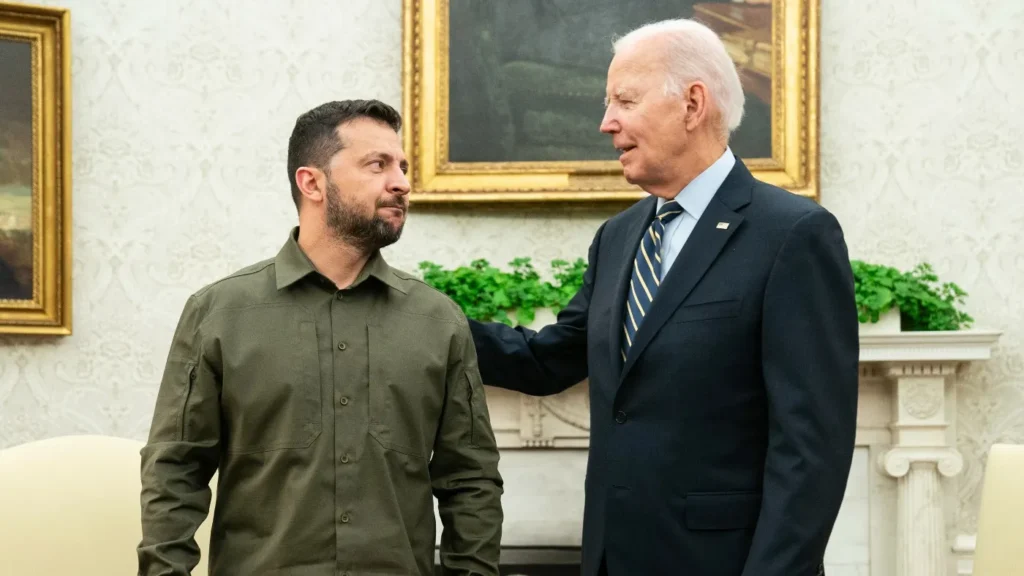Newsmatro

Ukrainian President Volodymyr Zelenskyy made a second visit to Capitol Hill in an effort to secure continued support from U.S. lawmakers for Ukraine’s ongoing battle against Russia’s invasion. However, despite his appeals, it appears that his visit has not substantially swayed lawmakers who remain skeptical about providing additional assistance to Ukraine.
Zelenskyy’s visit to Washington involved bipartisan meetings with House lawmakers and an all-senators meeting, though it lacked the fanfare that accompanied his address to a joint session of Congress last December. In August, President Joe Biden requested that lawmakers approve an additional $24 billion in aid for Ukraine.
House Speaker Kevin McCarthy expressed reluctance to include Ukraine aid in a spending package to fund the government, declining to commit to bringing Biden’s request to the House floor. McCarthy emphasized that President Biden has not adequately conveyed the objectives of the conflict, stating, “He hasn’t made the case to the American public, what is victory? What does it take to be able to win?”
Prior to Zelenskyy’s visit, a group of 28 GOP lawmakers from both the Senate and House signed a letter opposing Biden’s request, contending that the White House had not sufficiently persuaded Congress regarding the progress of the war. The letter characterized granting the request as an “absurd abdication of congressional responsibility.”
Senator J.D. Vance, who led the letter opposing the White House’s supplemental request, dismissed Zelenskyy’s visit as a “farce” and did not attend the all-senators meeting, citing a lack of opportunity to pose questions. He expressed disappointment with the classified briefing on the war effort, stating it provided limited chances for lawmakers to ask questions.
A stopgap spending measure proposed by House Republicans to avoid a government shutdown, known as a continuing resolution, notably excludes Ukraine aid. McCarthy, who participated in the bipartisan House meeting with Zelenskyy, described the discussion as “productive” but raised concerns with the Ukrainian president regarding “accountability” and transparency in the U.S. assistance to Ukraine.
McCarthy also disclosed that he declined a request to allow Zelenskyy to address the American public from the House floor, citing time constraints as Congress works to avert a shutdown. He mentioned that the request for a joint session came approximately a week before Zelenskyy’s visit.
Representative Michael McCaul, a strong advocate for continued Ukraine support, reported “universal support” for Ukraine at the meeting. McCaul placed responsibility on the White House for diminishing support among GOP lawmakers, calling for full backing or withdrawal from the conflict, emphasizing that the war could not be won through attrition.
National security adviser Jake Sullivan countered claims of waning support, stating that a small but vocal minority was obstructing assistance. He noted that Speaker McCarthy had been an advocate for military aid to Ukraine, along with numerous Republicans in both chambers. Sullivan announced a new military aid package to assist Ukraine during the approaching winter and maintain its counteroffensive gains.
In the Senate, bipartisan support for continued U.S. aid to Ukraine remains strong. Following Zelenskyy’s briefing to senators, Senators Jeanne Shaheen and Thom Tillis issued a joint statement advocating for Ukraine’s support and emphasizing that congressional assistance is essential to ending the conflict with Russia.